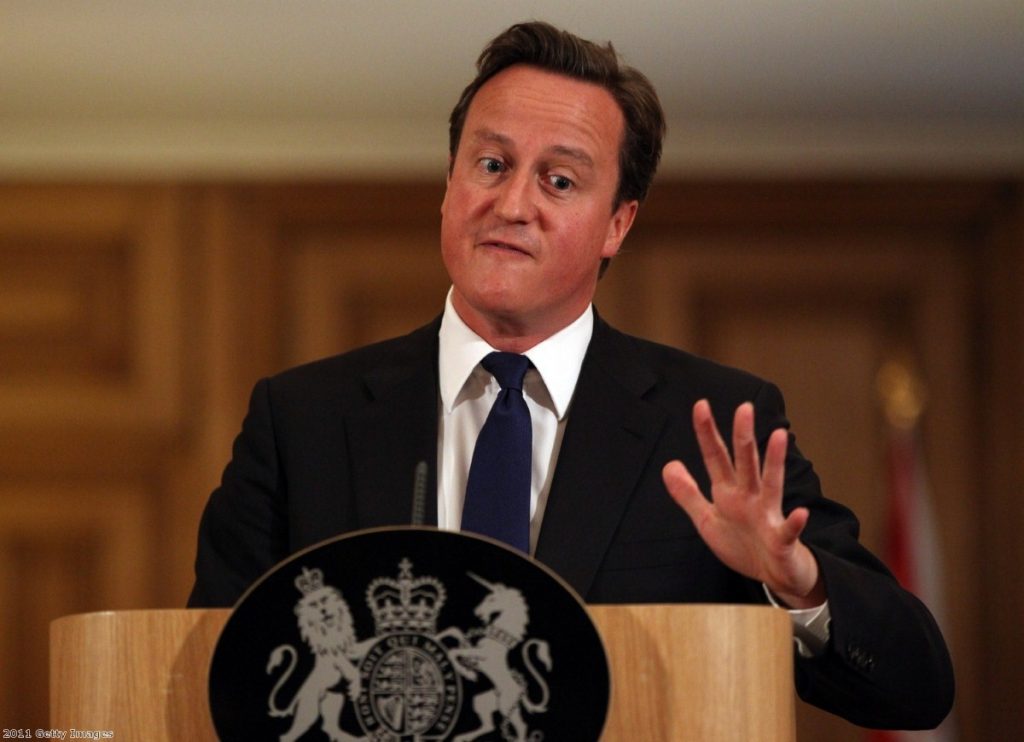Furious Cameron refuses to answer questions at PMQs
David Cameron took the unprecedented step of refusing to answer an MP's questions during PMQs today, in a move which some parliamentarians said broke Westminster convention.
The prime minister appeared to be furious when listening to a question from shadow immigration minister Chris Bryant, who asked why he refused to reveal his communications with Rebekah Brooks, News International chief executive and a personal friend of Cameron's.
"I wouldn't smile," Bryant added, pointing at the prime minister.
"When the truth comes out, the prime minister won't be smiling."


Bryant had used a previous parliamentary session to suggest Cameron was inaccurate in some of his comments over the phone-hacking scandal. He was later slapped on the wrists by the Leveson inquiry for breaking an 'embargo' on publication of the material.
Cameron looked visibly enraged when he told Bryant he spoke "untruths" about him.
"And you know what, until he apologises, I'm not going to answer his questions," he said, to uproar in the Chamber.
Online commentators quickly concluded the prime minister was unwise to say he wouldn't answer Bryant's questions, because it fuelled the publicity around the phone-hacking scandal.
One MP later raised a point of order with Speaker John Bercow, asking if the prime minister can refuse to answer questions from MPs. The Speaker accepted it was within parliamentary rules.
Shadow media secretary Harriet Harman later wrote to the prime minister demanding he publish the remaining exchanges between himself and Brooks.
The full text of the letter is below:
Dear Prime Minister,
I read with great concern yesterday’s Independent report that some emails between you and Rebekah Brooks, and between you and Andy Coulson, have not been disclosed to the Leveson Inquiry.
You established the Leveson Inquiry to ‘inquire into the culture, practices, and ethics of the press’ – and the terms of reference explicitly include ‘contacts and the relationships between national newspapers and politicians, and the conduct of each’.
The Leveson Inquiry presents us with an historic opportunity to solve longstanding problems with the press, including the relationship between the press and politicians.
It is vital that the Leveson Inquiry has all of the evidence available. I understand from the Independent report that some emails were not disclosed because you were advised they were not ‘relevant’. In order for the public to have total confidence it would be preferable for you to disclose all of the emails and let the Leveson Inquiry decide which are relevant. It appears this is how you dealt with the text messages between you and Rebekah Brooks.
In light of the Independent’s report, I would be grateful if you could tell me:
Are there emails between you and Rebekah Brooks that have not been disclosed to the Leveson Inquiry? If so, will you now disclose them to the Inquiry?
Are there emails between you and Andy Coulson that have not been disclosed to the Leveson Inquiry? If so, will you now disclose them to the Inquiry?
I urge you to disclose all of your communications with Rebekah Brooks and Andy Coulson to the Leveson Inquiry.
Yours sincerely,
Harriet Harman












